5 powerhouse pregnancy foods by Yasmin Alexander, registered nutritional therapist
Share
Pregnancy will affect us all in different ways. Some of us may breeze through without a touch of sickness, while others may have a tough time when it comes to experiencing symptoms. Common pregnancy symptoms such as nausea, vomiting and food aversions may leave us feeling a little lost or demotivated when it comes to eating and drinking to nourish both yourself and baby. There is a lot of advise for mums-to-be out there around the various do’s and don’ts of the pregnancy diet, but ultimately you need to trust your body and just do the best you possibly can to get yourself through. There may be days where all you can stomach is some dry toast, but on others you may be more open for adding some colour and texture. Please rest assured that your body is incredible and will be able to supply your growing baby with the nutrients it requires, as baby becomes the priority when it comes to cleaving nutrients.
I wanted to take you through my top 5 powerhouse foods to try and get in where you can during pregnancy, and most importantly, explain why they are nutrition powerhouses.
- Eggs
Eggs are one of the most versatile foods and can taste extremely different depending on how you cook them and what you cook them with. They are one of the richest sources of a nutrient called choline. Choline, together with folate, works to prevent neutral tube defects during the first trimester of pregnancy, and is heavily involved in building a healthy brain and nervous system for baby.
1-2 eggs a day is perfectly healthy during pregnancy as they are also a fantastic source of protein and other nutrients such as iron and vitamin B12.
Ensure you buy eggs which have a British Lion Stamp, as these are the safest form of eggs to consume. If your eggs do have the stamp, it means you can eat them runny or partially cooked, but if you are unsure, cook the eggs fully.
- Oily fish
Oily fish are the ones which contain higher levels of our healthy polyunsaturated fats known as omega 3 fats. Example are: Salmon, mackerel, anchovies, sardines, and herring – think of the acronym SMASH.
These oily fish are a great source of EPA and DHA, which are the omega 3 fatty acids. DHA is particularly important for baby’s brain and eye development, so ensuring you consume some oily fish or a suitable supplement during pregnancy is vital.
1-2 servings a week are recommended as more than this could contribute to higher intakes of pollutants found within the fish.
- Lentils
Lentils are part of the legume family, related to beans and chickpeas. They are fantastic to add to your pregnancy diet as they are a good source of slow energy releasing carbohydrates which can help with sustained energy levels and preventing blood sugar level imbalances which may exacerbate nausea. They are also a brilliant source of fibre – which is so important during pregnancy as many often suffer from constipation or harder to pass stools. What’s more, is that lentils are also high in plant-based iron. Iron requirements are higher during pregnancy, especially during the 3rd trimester as baby starts to store enough iron to see them through the first 6 months of life.
Try adding some lentils to salads, soups, stews, or dishes as bolognaise or burgers.
- Chia Seeds
These seeds might be small, but they are mighty and really pack a punch when it comes to nutrients. They boast being a great source of omega 3 fats, magnesium, calcium, zinc, protein, and fibre. A tablespoon of chia seeds contains about 5.5g fibre, one sixth of the daily recommended daily fibre intake. They contain a type of fibre that can help relieve constipation as they absorb water, making stools easier to pass.
They are a great addition to the pregnancy diet as they are fairly tasteless but can really boost the nutrient profile of any meal or snack they are added to. Try adding 1 tbsp daily to your smoothies, porridge, overnight oats, yoghurt bowls, as a toast topping along with some nut butter and banana, sprinkled onto salads, or even used to make a chia seed pudding.
- Kale
We are all aware of the documented beneficial effects of consuming fruits and vegetables every day, however this is something that may become more challenging during pregnancy if they have taken the brunt of your food aversions. If you are going to prioritise any fruit or vegetable to consume when you feel up to it, kale would be one at the top of my list. This is because green leafy vegetables, which have rich, dark colours are packed full of nutrients such as folate, magnesium, b vitamins, vitamin C and vitamin K. Folate in particular is required during the first trimester to help the spine fuse and prevent neutral tube defects in baby.
Try adding some kale to a smoothie, soups, cooked dishes such as pastas or shepherd’s pie, stir fry’s, cooked breakfasts along with some eggs and beans or simply on their own as roasted kale crisps.
Social links:
Website: www.nutritionbyyasmin.com
Link to pregnancy nutrition eBook: https://nutritionbyyasmin.com/product/pregnancy-nutrition-ebook/
Instagram: @nutritionbyyasmin
Email: yasmin@nutritionbyyasmin.com
